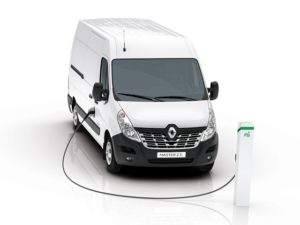Four North East businesses are being given the chance of winning a £20,000 grant to help develop ways to increase the uptake of electric vehicles.

The grants are being run by the Electric Vehicle Innovation Accelerator programme, which forms part of the Go Ultra Low North East campaign, and aims to identify and develop ways to overcome barriers to EV adoption.
Local businesses, whether well-established or just starting up, are invited to apply to the programme and successful applicants will benefit from business support along with an opportunity to win a £20k grant to help bring their idea to market.
The accelerator is being delivered by the Innovation SuperNetwork and ENGIE, which will host a workshop on Monday 25 March at the Urban Sciences Building at Newcastle Helix to launch the first wave of challenges and introduce the programme.
The event will consider how to reduce the costs and complexity of installing electric vehicle charging infrastructure. Solutions could come from any sector but the organisers are particularly keen to speak to businesses in the electrical, construction, manufacturing and architecture sectors, as well as related fields.
The strongest applications will be shortlisted based on commercial potential and relevance to increasing electric vehicle adoption and there are four grants on offer which will be decided by industry experts from the Innovation SuperNetwork, North East LEP, Zero Carbon Futures and Newcastle University, alongside Northstar Ventures who are providing commercial expertise.
The North East regional transport team in partnership with seven local authorities, working through the new North East Joint Transport Committee, are leading the drive to promote the take-up and use of electric vehicles as a cleaner and more sustainable way for people to get around. The accelerator is a key element of achieving this aim.
Councillor Martin Gannon, chair of the North East Joint Transport Committee, said: “There is a wealth of innovative companies in our region who can help us come up with solutions and we look forward to seeing some of the ideas they can bring while supporting firms with a grant to make them a reality.”
The second wave of the programme will launch in June 2019 and will focus on making electrification practical for temperature-controlled distribution, such as the electrification of refrigerated vehicles, along with solving how to use telematics to better manage infrastructure specific to electric vehicles. By October 2019, 16 new solutions will be ready for commercialisation or for significant further investment.
Applications for the full programme will open following the launch event. To sign up for the first workshop, click here.

